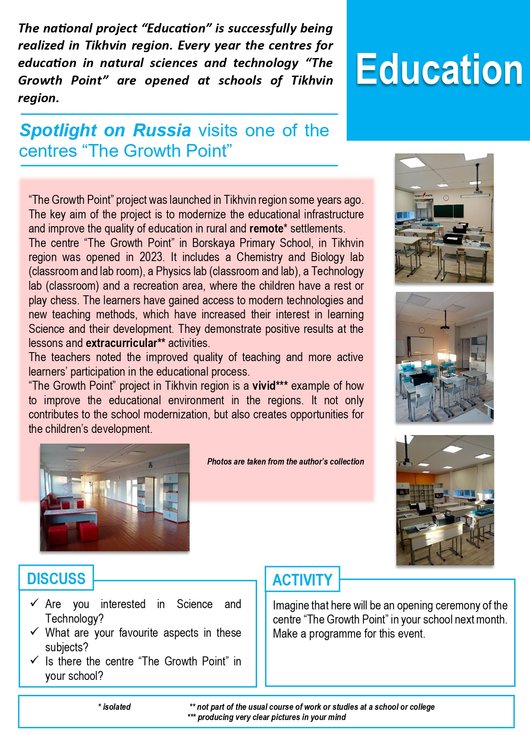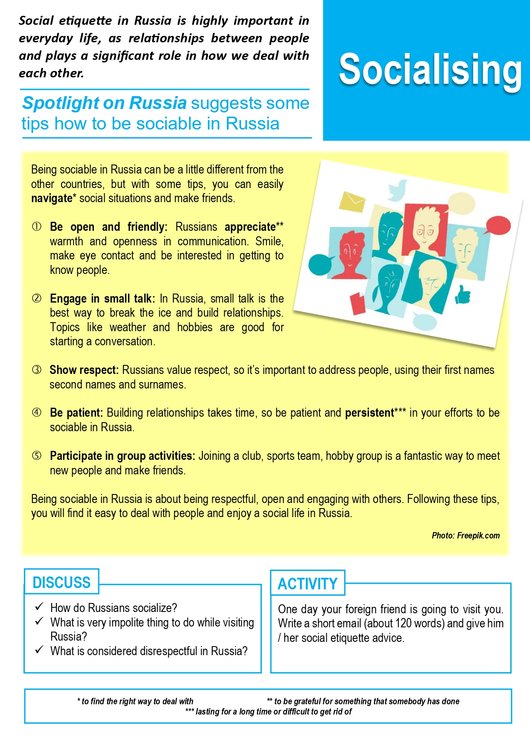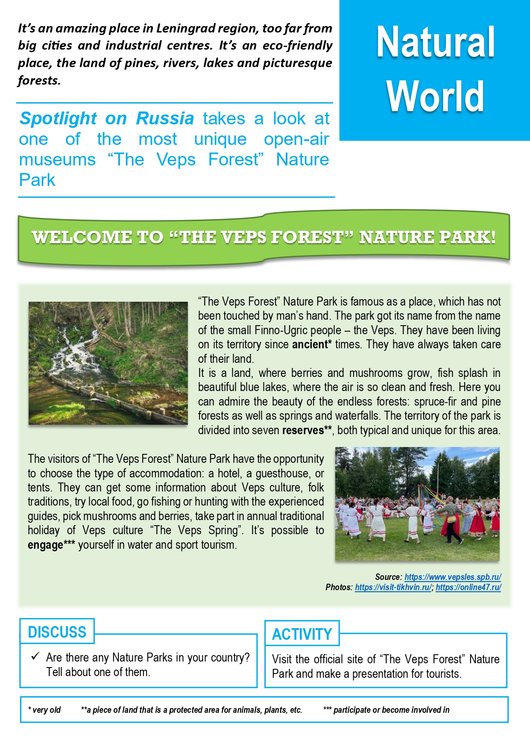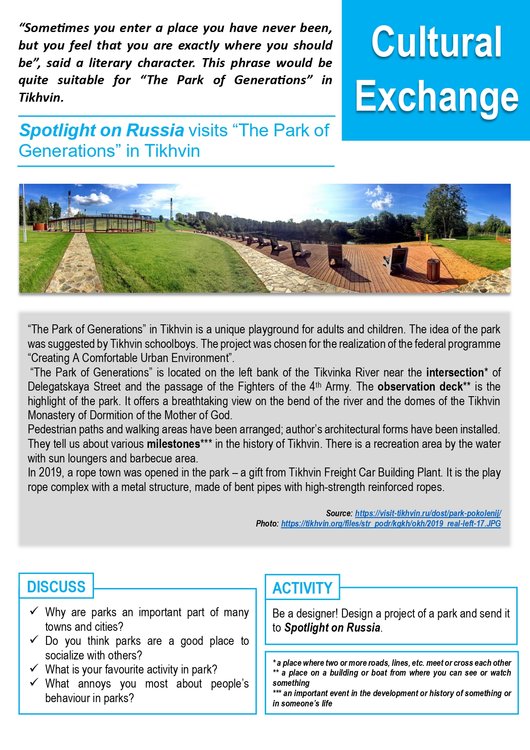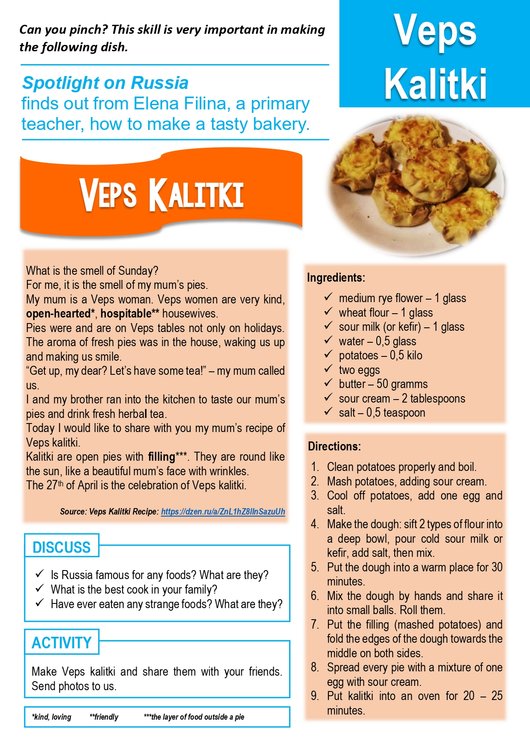Совсем недавно Алексей Васильевич Конобеев провел вебинар на теме "Авторское право для учителя". В дополнение к его материалу, хочу представить вам пример письма-запроса на разрешение использовать песни в образовательных целях ваших любимых исполнителей или групп.
Итак, представьте, что Вы решили сделать музыкальную презентацию к одной из знаменитых песен, использовать для своей разработки или просто спеть с учащимися на занятиях, концерте и т.д..
В строке поиска поисковой системы Вы пишете название группы или исполнителя и нажимаете кнопку «Найти»: Madonna Official Site.
Когда вышли результаты поиска, вам необходимо найти ссылку и пройти по ней на официальный сайт исполнителя / группы. На сайте исполнителя / группы вы находите раздел "Contact / Contacts", в нем размещена информация о том, как связаться с исполнителем / группой или его менеджерами; в этом разделе также имеются почтовые и электронный адреса.
После того, как вы познакомились с данным разделом, можно перейти в свой почтовый аккаунт и написать письмо следующего содержания:
Hello, dear!
My name is Vladislav. I am the English teacher of one of the Russian schools. I am working on project “Using Songs in the Classroom” now, that is why I would like to get your permission to use some of the songs at my lessons and teaching career. Of course, I do it or I will do it only in non-commercial purposes with the links to all Internet resources with information about your band and works.
Thank you very for your attention and your future reply!
Best wishes, Vladislav
В течение некоторого времени, обычно в течение 2 - 3 дней, приходит ответ. Иногда ответ может и не прийти по неизвестным причинам. Скорее всего, из-за плотного графика работы. На всякий случай, обязательно сохраняйте отправленное письмо.
Ответы бывают различного содержания. Например, от менеджера Брайана Адамса я получил такой:
Dear Vladislav!
You do not need permission to use learning for your students. Hope your students enjoy your lessons!
Only if you are recording songs and selling them or posting the song on the Internet.
All the best,
Michelle
ba.com
Вот ответ от "Imagine Dragons":
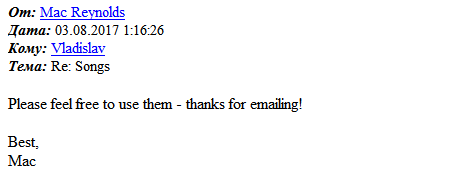
А это от менеджера группы "Status Quo":
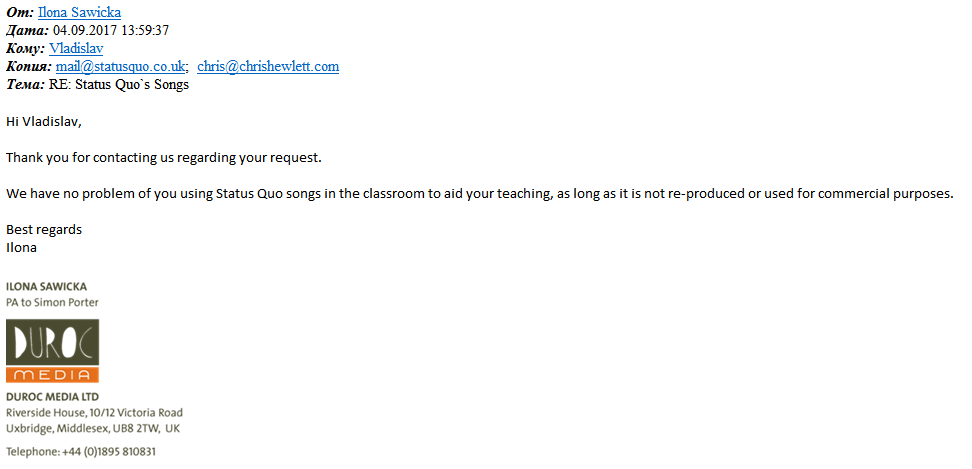
По поводу фотографий, иллюстраций и картинок, можно проделывать точно такую же работу, если они не размещены в Public Domains, а в блогах или где-то еще.
Выходите на сайт и также находите раздел "Contact / Contacs", еще может быть "Contact Us". Иногда в блогах дается сразу форма для сообщений, в которой Вы пишете. На днях я готовил разработку урока о Стивене Хоккинге, нашел несколько фото, которые размещены в Public Domain, а вот одно оказалось в блоге. Я связался с автором блога и спустя несколько минут получил ответ, к сообщению автор письма прикрепил фото, которое мне было нужно.
Содержание письма было следующее:
Hello!
I am Vladislav and I am the English teacher from Russia. I am preparing for the lesson now and I would like to get your permission to use Stephen
Hawking`s photo (he and his wife) from your site in my worksheet. Of course, I will do it only for educational purposes and with the right link to your
site`s page.
Thank you very much for your future answer!
Best wishes, Vladislav
Ответ от автора блога:
Вы, конечно, спросите, зачем же давать ссылку на сайт, с которого взят материал. Это на тот случай, если вы будете размещать свою разработку в сети Интернет.
На этом все. Всем удачи и успехов в работе!




